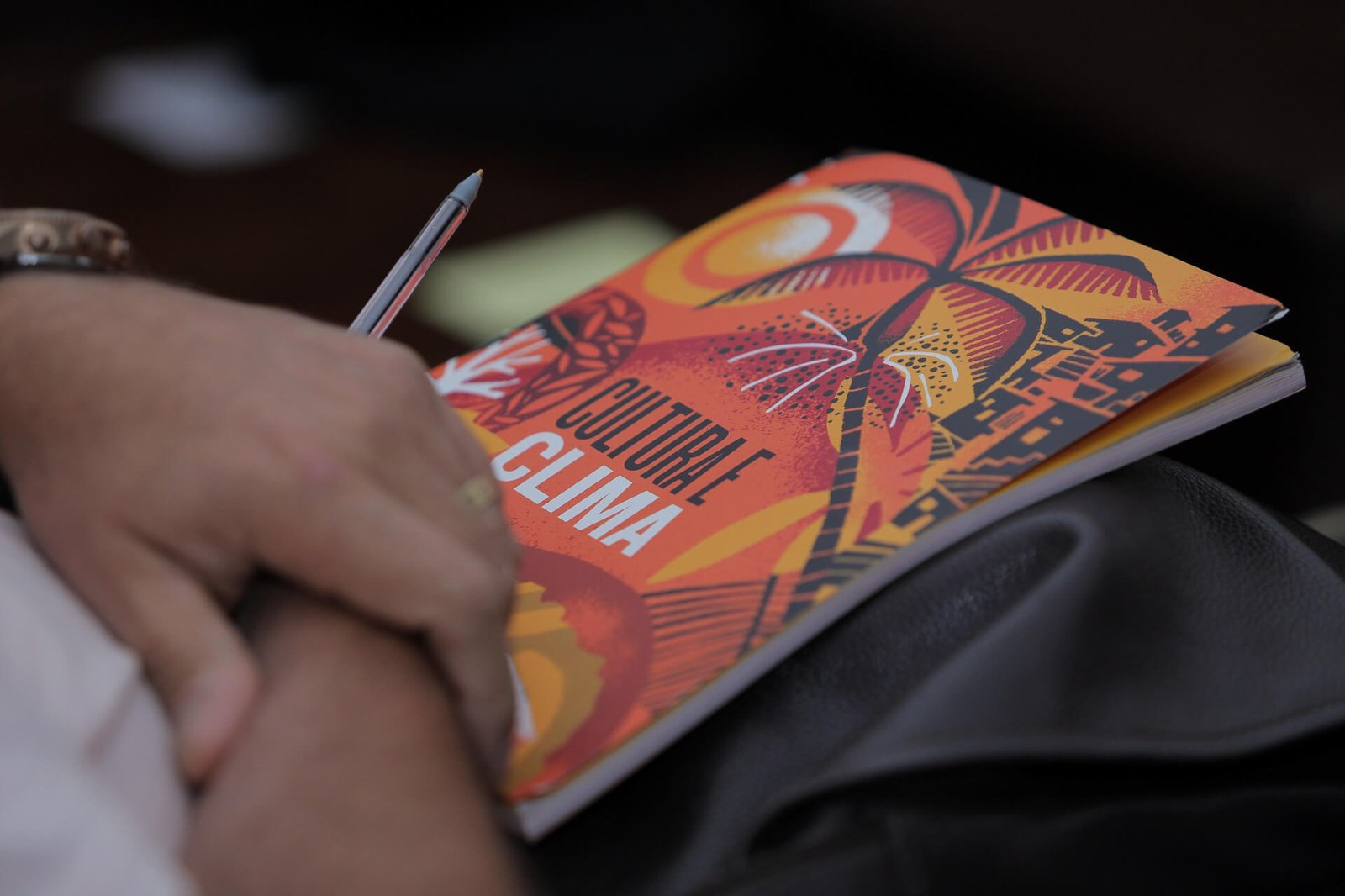Pioneering research on synergy between Culture and Climate is presented at G20 international seminar
The research aims to inform actors, governments, and institutions interested in the subject about the importance of creating and promoting cultural public policies focused on solutions to the climate crisis, including preserving cultural assets and climate education of public agents.

Acts such as the Paris Agreement (2015) on the climate crisis and the Declaration of the World Conference on Cultural Policies and Sustainable Development (2022) of the United Nations Educational, Scientific and Cultural Organization (UNESCO) are essential milestones on the international stage for advancing the understanding of culture, in a broader knowledge than art, as a factor for a green transition. Likewise, the political movement to create a Sustainable Development Goal (SDG) for Culture has grown.
These are some of the conclusions of the "Culture and Climate" survey, one of the first surveys in Brasil to build this connection, with the elaboration of "C de Cultura" and "Outra Onda Conteúdo," with technical support from the Veredas Institute. The presentation on November 7 is part of the agenda of the International Culture and Climate Change Seminar, a side event of the Culture Working Group (WG) that meets this week in Salvador, Bahia. The research, which includes more than 120 publications, synthesizes evidence on the subject to inform interested actors and institutions, especially with the opportunity to focus on the United Nations Framework Convention on Climate Change.
“We have experienced more extreme weather events and need to think quickly about organizing ourselves. It's a huge concern that we have, and that's why the research was done. We need to think based on our territories and knowledge, based on the people that live in our country, about what adaptations we will make and what types of knowledge and policies we will create to have a better impact and greater adaptation," said Mariana Resegue, executive director of C de Cultura.
The publication indicates the still low potential for institutionalizing policies that bring together the theme, and the presentation of the results in a seminar that precedes the meeting of Ministers of Culture from the world's largest economies is an important opportunity. Another conclusion highlighted in the document is the relevance of Indigenous peoples as holders of knowledge on the issue but who face systemic challenges of invisibility and exclusion from social participation. The proximity to the territory and its agents as a key to awareness is also among the results.
The minister of Indigenous Peoples already emphasized this point at the Seminar's opening on Monday (4). “We cannot face this climate crisis if we do not protect the cultures and diversity we have in Brasil. They go beyond cultural manifestations. And we, Indigenous peoples, are part of the solution to mitigate climate change. We represent 5% of the world's population and protect 82% of global biodiversity. This Seminar, as well as the G20 summit in Rio de Janeiro this month, will be another opportunity for us to recognize the role of Indigenous peoples in preserving the planet,” noted Sonia Guajajara.
“What is important at this moment is how to adapt to the different knowledge and experiences throughout the climate changes we are currently living through. This is a great challenge that has not yet started. We are late. There are not enough policies for this yet in global terms, but the discussion is happening, and culture has to be part of this discussion," said Eduardo Carvalho, founder of "Outra Onda Conteúdo", on the urgency of attention to culture when thinking about the environment and impacts of climate change.
The Seminar ended its activities on Thursday (7). Tomorrow, at the Salvador Convention Center, the Ministerial Meeting on Culture will take place, the last one before the Leaders' Summit in Rio de Janeiro on the 18th and 19th of this month.
*Translated by PGET-UFSC